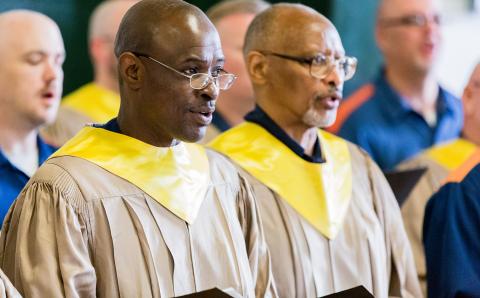You’ve probably heard the rumor spread by pop-culture outlets and institutions of learning that science has proved God doesn’t exist. I hear this rumor too often. I spoke recently to a university committee tasked with addressing the raging mental health crisis on campus about how spirituality can help students struggling with depression, anxiety, and hopelessness. Afterward, one of the administrators came up to me: “No offense,” she said, “but I think anyone who believes in God has a mental health problem.” As we chatted, she insisted several times that because science had conclusively disproved God, God has no place in a scientific institution such as a university.
She’s wrong on both counts. Science has not disproved God, and many scientists believe in God. In fact, in the wake of Barack Obama’s appointment in 2009 of a devout Christian, geneticist Francis Collins, to head the National Institutes of Health, the Pew Forum surveyed scientists in the United States and found that just over half believe in God (bit.ly/2mraT2S). There must be a lot of incompetent scientists in North America if half their membership still believe in something their own field has apparently disproved!
Most Reformed Christians probably don’t get too rattled by claims that science has disproved God’s existence. Our tradition has a proud history of encouraging scientific research as well as reflecting on how science and faith complement each other to help us understand God’s work as creator, sustainer, and redeemer of all reality. When a historic standard like the Belgic Confession speaks of God revealing himself to us in “two books,” Scripture and creation (Article 2), it’s not surprising that the Reformed tradition produces scientists like Collins, theologians like Alister McGrath and Thomas Torrance, and philosophers like Alvin Plantinga, all of whom are convincing guides for how to read God’s “books” in harmony with each other.
At the same time, I’ve found it useful to have something on hand for when folks try to convince me that science has disproved God’s existence. Lately, I’ve been falling back on a charming and simple example used by John Lennox, a British professor of mathematics. Imagine your Aunt Matilda bakes a fantastic cake, which is then analyzed by a horde of scientists. Chemists, physicists, and nutritionists can tell us all about the proteins and particles and calories in the cake. In other words, they know (almost) everything about how the cake was made. But why did Aunt Matilda make the cake in the first place? That she made it for your birthday is something she’ll have to reveal. So the most important question of all can’t be answered by the scientists.
Lennox’s point, of course, is to remind us of something too often overlooked: science has limits. The most basic and the biggest questions we have—Why is the universe here? Why are we here? What does it all mean?—aren’t questions science is qualified to answer because science handles the how of the universe and not why it was made or who made it. Christians should rejoice that scientists and their research help us appreciate how God created his world and how he rules over his handiwork. But in Christian belief, God isn’t part of the stuff of the universe. What this means, then, is that it’s simply beyond the reach of science to prove or disprove God.
About the Author
Todd Statham is the Christian Reformed chaplain at the University of British Columbia (Okanagan Campus) and a research fellow at the Kirby Laing Centre for Public Theology in Cambridge.








